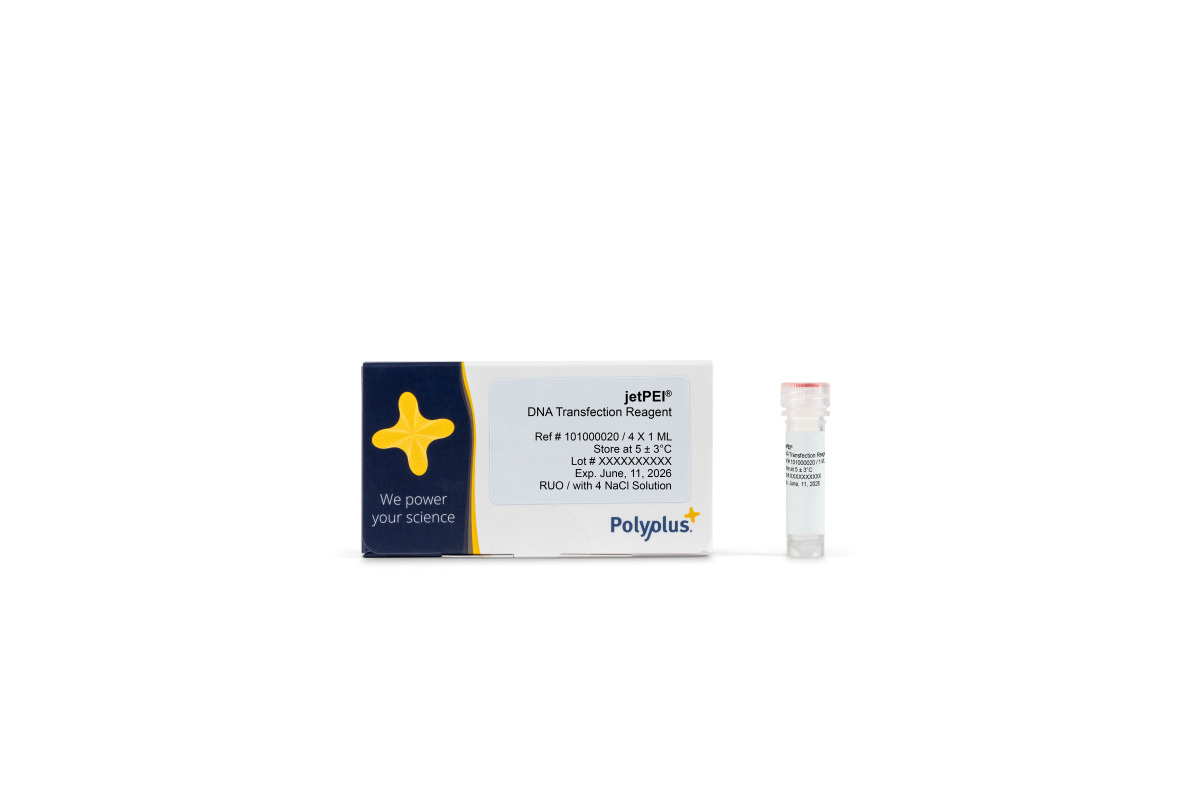
jetPEI® transfection reagent
High-throughput screening (HTS) is widely used in the pharmaceutical industry and in basic and translational research to study biological processes. HTS assays are typically conducted in microtiter plate formats (96, 384, or 1536 wells), making the use of a highly reproducible transfection reagent essential.
1 ml of jetPEI® is sufficient for up to 2000 transfections in 96-well plates.
Applications
- plasmid transfection
- high-throughput screening (HTS)
Cell type applications
- adherent cells
- suspension cells

Superior Transfection Results
jetPEI® has been benchmarked against several other commonly used transfection reagents and was found to provide the best performance: high efficiency and low variability.

Protocols Tailored to Your Application
In the forward protocol, cells are seeded one day before transfection, and jetPEI®/DNA complexes are added to either adherent or suspension cells.
The reverse protocol is best suited for gene group transfection, such as DNA libraries. In this method, jetPEI®/DNA complexes are prepared or pre-plated before adding cells. Complexes remain stable for up to 4 hours.
The batch processing protocol is designed to prepare a homogeneous population of transfected cells. Cells are transfected immediately after trypsinization while still in suspension. This protocol is preferred for drug screening applications and enables one-day faster processing compared to the forward protocol.

Robust Transfection Complexes for Reliable HTS
Complexes formed with the water-soluble polymer jetPEI® and DNA remain effective for up to 4 hours, unlike lipid- and calcium phosphate-based reagents. This provides ample time for applying complexes to the plates.

Efficiency Across a Broad Range of Cell Types
jetPEI® successfully delivers genes to a wide variety of adherent and non-adherent cell lines, as well as primary cells. Over 550 publications cite the use of jetPEI®. Additionally, our online database offers specific transfection conditions for over 400 cell lines and primary cells.


